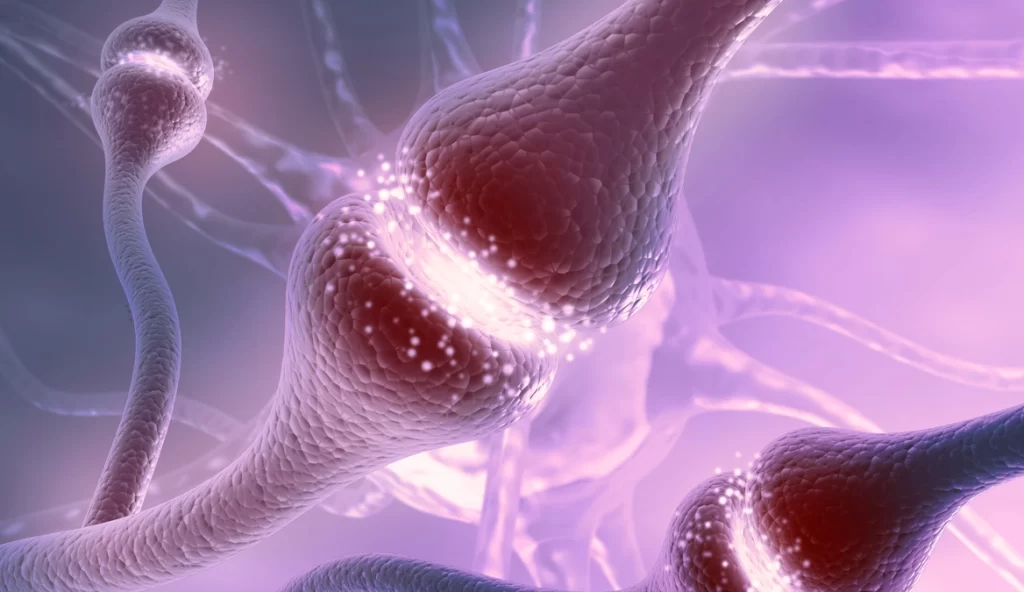Most of us are familiar with dopamine, the “feel-good” neurotransmitter molecule released by our brains when we do something that feels rewarding. But did you know that research has shown this chemical can benefit your overall mental and physical health? In this blog post, we will explore how dopamine plays a role in our lives, its effects on wellbeing, and how it can help us achieve a better balance between work, rest, recreation, and self-care.
What is dopamine, and what does it do in the brain?
Dopamine is an important neurotransmitter in the brain that helps to regulate many of the body’s most essential functions, from movement and cognitive processes to emotional responses. It acts as a messenger in the communication between the two major parts of the brain, sending signals back and forth to control physical and behavioral processes. The primary function of dopamine is to motivate our behavior and reward us with pleasure after completing certain tasks. This motivation may be linked with intrinsic goals related to health, altruism, creativity, or relationships. It can also drive more mundane desires like eating an unhealthy snack or playing guilt-free video games. The dopamine system also helps regulate different drugs, including opiates and stimulants. When drugs enter the system, they often increase dopamine production, leading to intense euphoria and excessive craving for those same effects.
How dopamine affects motivation, pleasure, and addiction?
Generally, dopamine is released in the brain when humans expect rewarding experiences such as creative success or achievement. This release of dopamine is thought to produce feelings of satisfaction and happiness. However, too much dopamine can lead to addiction, as it creates greater and greater cravings for the object or substance with which our brains have learned to associate pleasure. This excessive reward sensation is then sought after through increased use of whatever produced the initial sensation; this often leads to damaging overconsumption and addictions. Dopamine thus plays an integral role in how people experience motivation and pleasure, but if it becomes unbalanced, it can lead to addiction and other problematic behaviors.
What are the benefits of increasing dopamine levels in the brain?
Increasing the amount of dopamine in the brain can provide various potential benefits, including improved cognition and memory recall, increased focus, enhanced mood, improved sleep quality, and stress management. Many people have struggled to cope with decreased levels of dopamine caused by nutrient deficiencies, hormonal imbalances, or drug use. Increasing dopamine levels have been shown to help boost alertness and concentration and mediate cravings for substances such as alcohol or drugs. Additionally, dopamine is believed to play an important role in reward-based decision-making and motivation; having higher levels of it may encourage individuals to find more pleasure in everyday activities. All in all, increasing dopamine in the brain can lead to cognitive improvements and increased mental stability.
Ways to increase dopamine naturally?
If you’re seeking an improved sense of well-being, improved cognition, and better productivity, then it’s time to boost your dopamine levels naturally. Exercise has been proven to increase dopamine levels due to the natural release of endorphins during physical activity. Eating healthy foods like bananas, eggs, and fish that contain essential vitamins and minerals can also help to initiate dopamine production. Additionally, practicing activities like meditation and sound therapy can reduce stress, positively influencing dopamine production in the brain. Finally, connecting with family members and friends or even embracing a new hobby are great ways to stimulate dopamine release naturally.
How to tell if you have low dopamine levels?
Low dopamine levels can significantly influence mental and physical health, causing symptoms such as a lack of motivation and difficulty concentrating. Low dopamine levels can also lead to sleep issues, fatigue, mood swings, and cravings for unhealthy foods. While individuals may experience these warning signs, they might not be aware that they are linked to an imbalance in their dopamine levels. One clue is to monitor one’s general well-being. Suppose there has been an extended period where energy levels are low or anxiety has become increasingly difficult to manage. In that case, getting tested for lower dopamine levels is worth it. Fortunately, there are ways to naturally regulate and improve dopamine levels with dietary changes or lifestyle modifications such as increased physical activity or reduced stress. Seeking professional help to identify underlying issues is also recommended and can ultimately support balancing dopamine within the body.
Conclusion
Dopamine is a feel-good chemical that helps with motivation and focus. It also plays a role in learning, memory, and verbal fluency. While some potential side effects are associated with having too much or too little dopamine, it’s generally considered a safe and healthy part of the brain’s chemistry. So go ahead and enjoy that sense of accomplishment after completing a task, knowing that your dopamine system is working hard to keep you motivated!
References
Klein, M. O., Battagello, D. S., Cardoso, A. R., Hauser, D. N., Bittencourt, J. C., & Correa, R. G. (2018). Dopamine: Functions, Signaling, and Association with Neurological Diseases. Cellular and Molecular Neurobiology, 39(1), 31–59. https://doi.org/10.1007/s10571-018-0632-3


